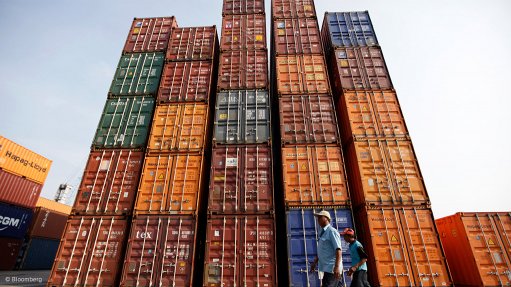
Photo by: Bloomberg
The volume of world merchandise trade increased modestly, by 0.7%, in the first quarter of this year, as exports and imports registered slower growth than over the previous six months, the World Trade Organisation (WTO) said on Thursday.
Global exports increased by 0.4% in the first quarter of this year, down from the 2.1% growth registered in the three months to December 2014, while imports grew by 0.9% in the same period, which was lower than the 1.5% growth recorded in the previous quarter.
Further, the WTO highlighted that exports from developing and emerging economies rose by 1.5% in the first quarter, with all regions except Asia registering growth of 3% or greater.
In contrast, exports from developed countries fell by 0.5% in the same period, with US exports decelerating by 4.5%, it noted.
Meanwhile, developing and emerging economies increased their imports by 0.6% in the first quarter, with South and Central America and the Caribbean registering strong import growth at 6.8%.
Developed economies also increased their imports by 1.3%, led by stronger import growth in Europe and North America.
BALI NEGOTIATIONS
At an informal meeting on June 23, WTO members reiterated the urgency to meet the July deadline for ideas on framing the services part of the post-Bali work programme, echoing WTO director-general Roberto Azevêdo’s June 16 call for members to make the needed “tough political calls”.
However, some delegations were of the view that services negotiations, which would include market access, development, domestic regulation and the General Agreement on Trade in Services (GATS), would have to wait for progress in the agriculture and industrial goods sectors, as “the lights need to flash” in these talks before members can decide what will happen in the services negotiations.
The members agreed that GATS rules negotiations were not mature enough to form part of the work programme and several members called for resuming text-based negotiations. Many felt that the services negotiations needed to be more independent.